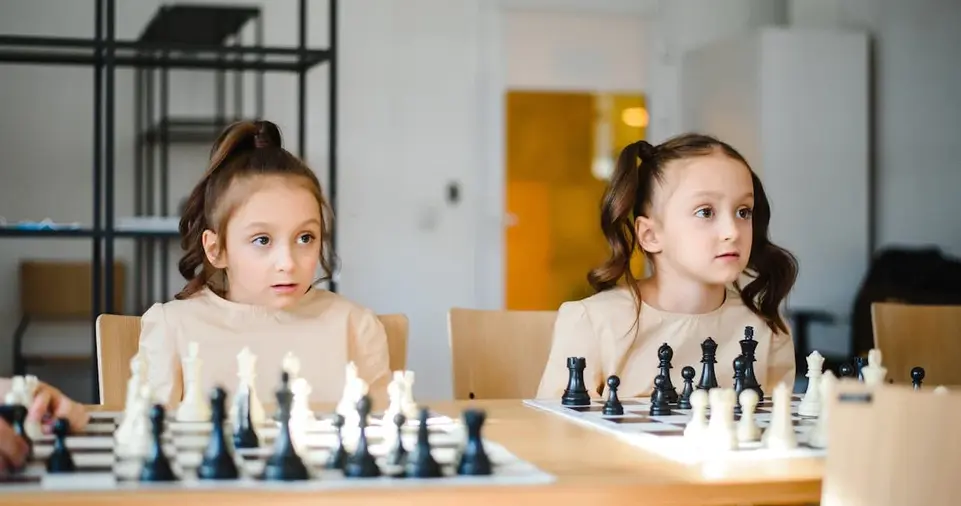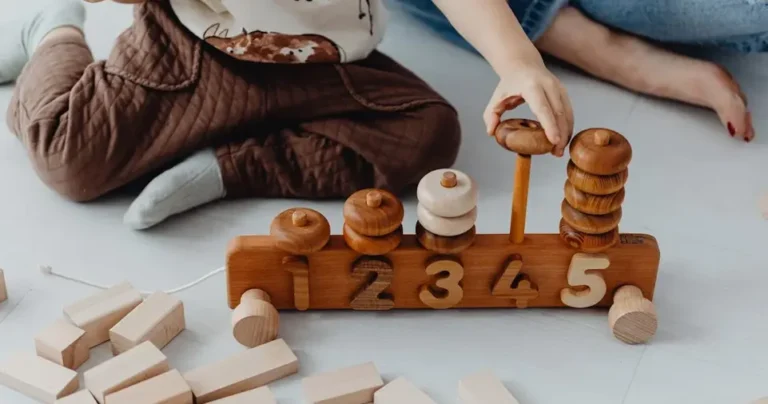Logical thinking is the foundation of problem-solving, decision-making, and understanding the world around us.
From solving math equations to navigating social interactions, logical thinking helps children process information, make sense of their experiences, and make decisions based on reason.
In today’s fast-paced, information-heavy world, these skills are more essential than ever, both for academic success and for life beyond the classroom.
But how do we help children develop this crucial skill? The answer lies in providing them with opportunities to engage with toys and activities that stimulate their minds and encourage reasoning.
Educational toys, in particular, offer a fun and effective way for children to practice logical thinking.
These toys promote creativity, exploration, and problem-solving while laying the groundwork for essential cognitive development.
In this article, we will delve into the importance of logical thinking for kids, the role that educational toys play in nurturing this skill, and practical ways to encourage logical thinking in everyday life.
By understanding the value of logical reasoning and integrating playful learning tools into children’s routines, we can equip them with the thinking skills that will serve them throughout their lives.
The Importance of Logical Thinking for Kids
Logical thinking refers to the ability to think clearly, understand relationships, and make reasoned decisions.
It involves analyzing situations, considering various factors, and drawing conclusions based on evidence.
For children, developing this skill is key to navigating the complexities of learning, social interaction, and decision-making.
Key Benefits of Logical Thinking in Kids
- Problem-Solving Abilities: Logical thinking helps children break down complex problems into smaller, manageable steps. By doing so, they can analyze possible solutions and choose the one that makes the most sense.
- Academic Success: Logical thinking is foundational in many academic subjects, including math, science, and language arts. Strong logical skills help children perform better in subjects that require reasoning and structured thought.
- Decision-Making: Whether it’s choosing what to eat for lunch or deciding how to resolve a conflict, logical thinking allows children to make sound decisions based on reason and evidence.
- Social and Emotional Intelligence: Logical thinking also impacts social skills, as children need to understand the consequences of their actions, empathize with others, and reason through social situations.
- Cognitive Development: Logical thinking is deeply connected to cognitive development. As children engage in logical reasoning, they enhance memory, attention, and processing skills—important building blocks for all types of learning.
How Educational Toys Enhance Logical Thinking

Educational toys are specially designed to make learning fun and engaging. These toys encourage children to think critically, solve problems, and reason through challenges, all while playing.
By incorporating educational toys into daily playtime, children are given ample opportunities to practice and refine their logical thinking skills.
Key Benefits of Educational Toys for Logical Thinking
- Encouraging Exploration and Experimentation: Toys that allow children to experiment and try different strategies can help them learn through trial and error. When children engage with toys that offer multiple outcomes, they start to understand the concept of cause and effect.
- Providing a Safe Environment for Mistakes: Educational toys allow children to make mistakes without the fear of failure. When children are given the freedom to fail, they learn how to think logically and find alternative solutions.
- Stimulating Critical Thinking: Toys that require children to solve puzzles, follow rules, or assess outcomes help stimulate critical thinking. These activities encourage children to evaluate options, think ahead, and use logic to arrive at the best solution.
- Promoting Sequential Thinking: Many educational toys require children to follow specific steps or sequences. This builds their ability to organize tasks and think in a structured, logical way.
- Enhancing Pattern Recognition: Toys like shape sorters and pattern blocks help children recognize patterns, which is a critical component of logical thinking. Pattern recognition plays a significant role in mathematics, problem-solving, and even language development.
Risk-Taking: The Role of Trial and Error
For kids to develop logical thinking skills, they need to experience a range of challenges, including opportunities for trial and error.
Risk-taking is a fundamental part of logical thinking because children can only develop these skills by engaging with problems, making mistakes, and reasoning through their errors.
Letting children take risks—such as solving a difficult puzzle, trying to build a complex structure, or experimenting with new strategies—helps them develop resilience.
By allowing them to make mistakes and learn from them, they gradually improve their problem-solving abilities.
When children encounter setbacks, they are encouraged to reason with the problems they are facing, analyze what went wrong, and think of alternative solutions based on previous hints or clues.
This process of trial and error builds their logical thinking skills and boosts their confidence in their abilities.
Types of Educational Toys That Build Logical Thinking Skills
There are a variety of educational toys that can effectively support the development of logical thinking in children.
Below, we’ll look at some of the most engaging and beneficial types of toys for developing these critical skills.
Building and Construction Toys
Building toys such as LEGO sets, K’NEX, and Magnetic Tiles encourage kids to think about spatial relationships, balance, and structure.
By building complex structures, children must follow instructions, assess stability, and think through each step logically.
- LEGO Sets: LEGO encourages children to use logical thinking as they follow step-by-step instructions to build various structures. As children become more comfortable, they can invent their own designs, testing their problem-solving abilities and applying creative logic.
- K’NEX: K’NEX is a construction toy that promotes logical thinking through the design and creation of moving structures. Children must understand how the parts fit together and how they can build functional models, which helps them develop critical thinking and engineering skills.
- Magnetic Tiles: These toys allow children to create geometric shapes and structures using magnetic tiles. This form of play enhances spatial awareness, pattern recognition, and logical reasoning, helping kids understand geometry and balance.
Puzzle Toys
Puzzles are excellent tools for developing logical thinking because they challenge children to use reasoning and spatial skills to complete the puzzle.
- Jigsaw Puzzles: Jigsaw puzzles help children improve their logical thinking by encouraging them to assess how pieces fit together. They also improve pattern recognition and sequencing.
- Tangrams: These flat geometric shapes can be rearranged to form various figures, helping children recognize patterns and think critically about how shapes fit together.
- Sudoku and Logic Puzzles: Puzzles like Sudoku encourage deductive reasoning. They challenge kids to identify patterns, follow rules, and logically deduce the correct answers.
STEM Toys
STEM toys engage children with science, technology, engineering, and math concepts, making them a great choice for developing logical thinking.
- Robotics Kits: Toys like Ozobot or Sphero encourage logical thinking through programming and problem-solving. Children learn to code and control robots, which builds reasoning, sequence-following, and critical thinking skills.
- Science Kits: Experiment kits that teach basic science concepts allow children to reason through processes, observe cause and effect, and think logically about scientific principles.
- Math Toys: Toys like Math Dice and Number Blocks help children explore mathematical concepts in a playful way, boosting their ability to think logically about numbers, operations, and mathematical relationships.
Board Games
Many board games require children to use logic, strategy, and planning to succeed, making them valuable tools for promoting logical thinking.
- Chess: Chess is a game of strategy that requires players to anticipate moves and plan several steps ahead. It encourages logical reasoning and forward-thinking.
- Checkers: Like chess, checkers involves strategic thinking and understanding patterns. Children must plan their moves carefully and consider how their opponent might respond.
- Memory Games: Memory games like Memory Match require children to remember where specific cards or objects are located. These games strengthen memory and logical thinking as children learn to track patterns and make connections.
Open-Ended Questions and Stories
In addition to toys, one effective way to enhance a child’s logical thinking is through exposure to open-ended stories and questions. These activities encourage kids to interpret and reason through different scenarios.
- Open-Ended Stories: When children are exposed to stories with ambiguous or open-ended endings, they are encouraged to think logically about possible outcomes and interpretations. This helps them develop reasoning skills as they analyze different perspectives.
- Asking Open-Ended Questions: Asking your child questions like “Why do you think that happened?” or “What would you do if…?” encourages them to think critically about the world around them. By providing space for children to interpret questions or stories their way, they begin to make logical connections based on evidence and reason.
Encouraging Logical Thinking: Practical Tips
To help your child develop logical thinking skills, there are several methods you can use:
- Let Them Take Risks: Allowing children to take risks and make mistakes is crucial for developing logical thinking. When children know it’s okay to be wrong, they feel more confident in their ability to reason through problems and find alternative solutions.
- Use Fun Riddles and Puzzles: Engage your child with riddles and puzzles that challenge them to think logically. These activities can be exciting and rewarding, especially when they successfully solve a problem.
- Provide Opportunities for Creative Thinking: Encourage your child to think creatively as they engage with toys and games. This promotes both logical reasoning and imagination, helping them develop a well-rounded set of problem-solving skills.
- Ask Their Opinion: Giving children the opportunity to share their thoughts on news stories or everyday events helps them practice reasoning and forming conclusions. Show an open-minded attitude toward their opinions, which encourages them to think critically without fear of judgment.
- Use Real-Life Examples: Share your own experiences and how logical thinking helped you make decisions or solve problems. This shows children the practical value of logical thinking and encourages them to apply these skills in their own lives.
Conclusion
Building logical thinking skills in children is essential for their cognitive and academic development.
Educational toys, risk-taking, open-ended questions, and stories can all play important roles in fostering these skills.
By using a combination of strategies, such as encouraging exploration, allowing for mistakes, and introducing logical games, you can help children develop the reasoning and problem-solving skills they need to succeed.
As you continue to guide your child’s intellectual development, consider incorporating educational toys like Blix Robotics Kits, which combine fun and learning to strengthen essential skills, including logical thinking.
Remember, the key is to keep the process enjoyable and engaging—logical thinking will naturally grow as part of their play and learning experiences.











